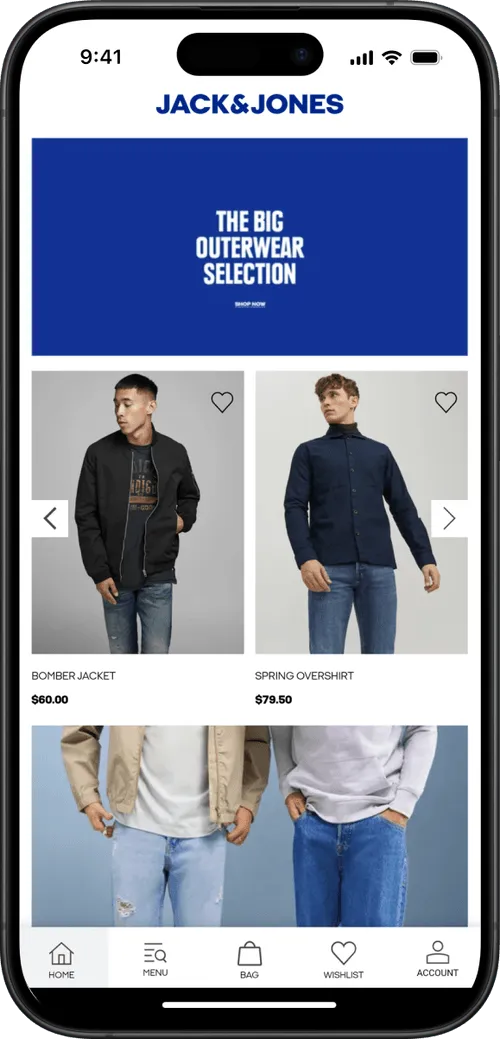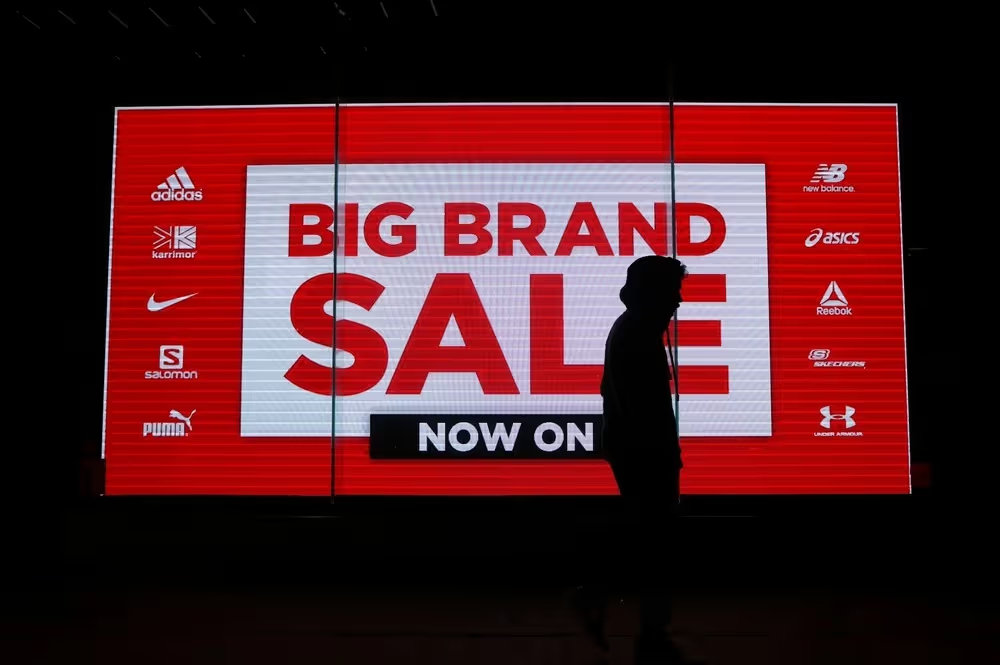Why You Should Convert Your Web App to a Mobile App
MobiLoud allows you to convert a website into a mobile app in the fastest and most efficient way possible.
With MobiLoud, you can go from web app to mobile apps in just a matter of days, and get all you need to build a strong presence on Google Play and the App Store.

But in this article we want to address a few fundamental questions.
Why would you convert a web app to mobile apps? What are the benefits?
Isn’t a strong web presence enough?
Yes and no. A great web app is ideal for desktop users, picking up referral and organic traffic, and converting first time visitors to repeat users. It’s also ideal for building the core features, logic and functionality of your UI.
Mobile apps provide unique benefits though, and give you the option to grow beyond the ceilings you may encounter on the web.
Let’s take a look at some of the core reasons why you should convert a web app to mobile apps!
Meet Modern User Expectations
In the earlier days of the internet it was all about desktop browsers. But things change fast when it comes to technology. First computers gave way to smartphones, with mobile internet usage taking the lead in 2016, then the mobile web gave way to apps.
Now, the vast majority of smartphone time is spent in-app.
“In 2020, consumers in the U.S. are expected to spend close to four hours a day with their favorite mobile devices (3:49 to be exact). Across all mobile devices, around 87% of all time spent is devoted to apps - and it jumps to 90% when looking just at time spent using smartphones”
Apps vs Mobile Websites: Understanding Their Users
Granted, a lot of this time is spent in social media apps and games, but there’s a wider trend.
People now expect an app like experience for any tool, platform or service that they intend to use regularly.
If your web app is something that is intended for regular, repeat use - and solves some specific problem - it’s a safe bet that your loyal users would want to have an app for it.
Google puts it this way:
“People turn to apps to ease their daily grind. And they're more likely to use them if they serve a specific purpose. Our research revealed that two in three will use an app frequently when it simplifies their lives”
If you don’t have mobile apps, you risk being forgotten about fast. By converting your web app to mobile apps though you get the best of both worlds - a strong presence on the web and iOS and Android apps for those that expect them.
Two: Provide a Better Mobile Experience
We already touched on the fact that people nowadays expect to install mobile apps on their smartphones for tools and services that they intend to use regularly.
One of the reasons for this is that apps provide a better mobile user experience.

Think about how your users access your web app right now. More than likely they have to remember you for whatever reason, open up their browser, put in the URL, wait for everything to load, maybe have to log in - then finally they are ready for the interaction.
Contrast this with mobile apps. They are reminded of your app through seeing the highly visible icon on their home screen, or through a push notification. Just one tap and they are in, and the app kept them logged in from last time. This removes a lot of friction, which is always a good thing to drive up usage and engagement.
Three: Build more Loyalty
Loyalty and retention are becoming increasingly key for digital businesses.
Apps help in several ways here. Our customers regularly confirm that app users are more loyal, spend more time engaging with content, and return more frequently.
The improved UX as we’ve already mentioned helps here - but there’s something else going on too.
The apps “self select” for your most loyal users in the first place. By the act of visiting the App Store or Google Play, downloading and installing your app on their smartphones - they are proving that they are a fan, or at least primed to become one.
According to App Annie’s report Why Your Mobile Strategy Needs an App:
Today apps are of paramount importance in gaining customer loyalty. Consumers spend the majority of their time on their smartphones in apps, and they expect brands they purchase from to have at least one app. Every time a business reaches out to a customer with a well-timed, relevant message, it increases the chances of gaining that customer’s loyalty. These days, one of the best ways to do that is via an app that has a well-defined audience, speaks to that audience in a tailored fashion, and delivers a stylish user experience.
Over time, the apps will come to represent your ‘core’ base of most loyal users. Having them all in one place - in a UI that is more favourable for retention - is a great advantage.
You can communicate with them more directly through mobile push notifications (more on that shortly), and understand them better through app analytics. This can give you valuable insights into your core users.
Four: Push Notifications that Actually Work
Push notifications are the best way to communicate with your users - and the only way you can take advantage of them is with iOS and Android apps.

Why?
Browsers are increasingly cracking down on web notifications (which have been abused and are generally seen as an annoyance), and on iOS you can’t send them at all!
With iOS and Android apps though, you can send push notifications to all your app users whenever you like, with whatever content you wish.
Push notifications have an open rate 5x higher than email, are far more visible than social media posts, and allow you to target iOS and Android users effectively.
You can use them to notify your users of important information, promote products and offers, or to encourage them to use the app - it’s up to you. You can also set them up to go out automatically at some specific event, or manually whenever you see fit.
Your web app alone will never allow you to properly send mobile push notifications - but mobile apps will - think about how this could help your marketing efforts.
Five: An App Store Presence
The App Stores are busier than ever.
This makes them competitive, but also a potentially great user acquisition channel. People use the App Store and Google Play to search for solutions to their problems - much like they use Google on the web. The visibility there and the visibility of your icon on the user's home screen is a powerful thing!

65% of app downloads on iOS come directly from a search in the App Store. This means that with a strong App Store Optimization strategy you can pick up a potentially significant number of new users who are searching for related keywords on the App Stores.
These users would likely never have found you on the mobile web (they are looking for an app), and would likely have found one of your competitors who does have apps. Don’t let that happen.
Not only do apps help you to gain exposure and new users, they are good for branding. Just having apps on Google Play and the App Store shows that you are a serious business that cares about mobile UX - and this can impress potential users, partners and investors.
Convert Your Web App to Mobile Apps for iOS and Android Today
We’ve looked at the key reasons why you should build mobile apps from your existing web app.
They are not a replacement for what you have already built for the web - but an extension into a new channel that can work together with it in synergy.
While your web app offers great reach, the foundational codebase, and immediate access for new users - the mobile apps will provide a rich and convenient experience for your biggest fans.
If you’ve ever wondered why Reddit, Quora, Facebook and most other huge companies are always pushing you to download the apps on their websites, this is why. Apps aren’t just for huge brands though, they can work just as well for your business on a smaller scale.
So how do you go about building them? Don’t they cost tens of thousands and take months to build? Well, they can - but not necessarily.
Perhaps you’ve already done all the hard work building your app for the web. There’s a way to take what you’ve already built, and repackage it into iOS and Android apps with all the ‘extras’ added to make it a great app experience and give you all the benefits listed above.
You can also build your apps in just days, for a fraction of the standard cost.
Sounds good? Get started with a free preview of your app or, get in touch with us to learn more about MobiLoud.
FAQs
Convert your website into a mobile app












